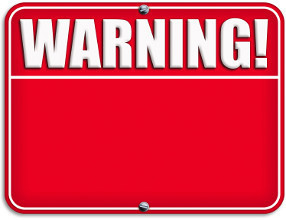Phyllis Zimbler Miller's Blog: Phyllis Zimbler Miller Author, page 49
June 13, 2011
Clarifying Facebook Profiles and Facebook Pages
When you first sign up for a Facebook account, by the terms of Facebook your account must be in your own name. This is a Profile that people can "friend."
Your Profile account has a range of privacy controls – you can decide how much you want people to know.
One warning: No matter how tightly you put the privacy controls, please don't put anything on any social media site that you wouldn't be comfortable with the world knowing.
Now Facebook Pages are what Facebook used to call fan pages and now just calls Pages. A Facebook Page can be used for your business, book, or cause – and people now "like" a Page (rather than "fan" a Page).
To create a Page, go to www.Facebook.com/pages/create.php
A major reason it is so important to have a Facebook Page for your business, book or cause is because the title of a Facebook Page is searchable inside and outside Facebook.
It used to be, when you created the title for your Facebook Page, you couldn't change the title. Now you can change the title up until your Page has 100 "likes."
Here are the current different category choices for you to choose from when you create a Facebook Page:
• local business or place
• company, organization or institution
• brand or product
• artist, band or public figure
• entertainment
• cause of community
What if you mistakenly used your business name on your Profile?
If Facebook discovers this, Facebook could eliminate your business name Profile without any warning, although Facebook does make some exceptions to this policy.
The good news? Now there is actually a way to correct your mistake by switching your business name Profile to a Facebook Page without losing the people who previously "friended" your Profile and now are assumed to have "liked" your Page.
Read about how to do this, including what remains and what disappears when you make the change.
© 2011 Miller Mosaic LLC
Phyllis Zimbler Miller (@ZimblerMiller on Twitter) is the co-founder of the social media marketing company Miller Mosaic LLC.
Get the free information "8 Social Media Marketing Mistakes" and "Social Media Marketing Does Not Magically Work; You Have to Work It" at www.facebook.com/millermosaicsocialmedia

June 7, 2011
How to Deal With Facebook Page Spam
Facebook Pages can be very effective for businesses to connect with their current and prospective clients and customers. But often people put spam comments on Facebook Pages. And in the past if you didn't remember to check your company's Facebook Page, these spam comments could remain there.
Now Facebook is helping you know when spam is put on your Facebook Page:
First , Facebook sends you an email of every comment put on your Page.
You have to want to receive this notification and, if you're not the active admin of your Page, you wouldn't necessarily want this notification.
But someone needs to get an email every time a comment is put on your Page so that the comment can be checked to see if it's spam.
In addition, Facebook itself sometimes decides about a comment:.
If you go to the wall of your Facebook Page and look right underneath the photo strip, you will see the name of your Page and "Most Recent."
If you click on the arrow next to "Most Recent" you can then choose on the dropdown "Most Recent" to see the updates chronologically.
Or from the same dropdown you can choose the option "Top Posts" and see a different order of updates.
(Facebook uses its own algorithms to decide which are the best or the most relevant updates.)
Then, when you're an admin on the Page, right under the word "Wall" on the left-hand side you have an additional category that says "Hidden Posts." (You can only see this when you're signed into your Facebook account and you're on your own Facebook Page.)
If you click on "Hidden Posts" you will see what Facebook has decided is spam. You can decide an update is not spam and you can tell Facebook to put it back on the news feed.
Or you can decide to remove the update but not ban the person. Plus you can decide to remove the update and ban the person from being able to again update on your Page.
This is a small part of what I covered in my talk about "Facebook Pages for Authors" as the kick-off speaker for self-publishing expert Shelley Hitz's FREE "Facebook for Authors" telesummit.
The replay of my talk will be available through June 9th. Go here now to signup to get the replay — http://budurl.com/FBtelesummit (this is an affiliate link for the free telesummit).
© 2011 Miller Mosaic LLC
Phyllis Zimbler Miller (@ZimblerMiller on Twitter) is the co-founder of the social media marketing company Miller Mosaic LLC.
Get the free information "8 Social Media Marketing Mistakes" and "Social Media Marketing Does Not Magically Work; You Have to Work It" at www.facebook.com/millermosaicsocialmedia

June 5, 2011
Social Media Actually Means Social
Social media means social – it does NOT mean advertising nor does it mean repeating the same tweet over and over about the prologue to your book with a link to a sample chapter.
What it mostly does NOT mean is having a Twitter account with no bio or link. And either no tweets (oh, yes, I see this often) or a few tweets that have no distinct personality.
Where is the social in any of these examples?
Real social media participation means understanding that the first order of business (yes, business, if you are using social media to connect with potential customers or clients) is to reveal who is behind the company and what the interests of the company are. What the company is offering (in other words, sharing not selling). And then to engage with others based on who you are.
[True story: A potential client showed Yael and me a Twitter bio that she liked. Yael said, "But what does it mean?" The potential client responded that she didn't know but "it sounded good." Now how does sounding good even though meaningless help create potential relationships on social media?]
I am even more amazed when I read a Twitter bio that is relatively clear about the business but there is no link. How does the person go about this business?
Even if there is no company website, a link to a Facebook Page or a LinkedIn profile could provide more credibility for the company.
And then there are situations in which, even if you have a company website, it would be better NOT to link to the website but instead link to a Facebook Page or other social media profile site. Why? Because if you are effectively making connections on social media – sharing information and not only pushing out sales messages – you do not want to risk visitors to your website experiencing a serious disconnect.
What disconnect?
A disconnect between your social media activities and your website can concern people who are starting to develop a relationship with you. For example, your photo is on your company's Twitter account, but when someone clicks through the link on your Twitter profile to your website you are nowhere in sight. Even the ABOUT page is written in the royal we. That's a social media disconnect.
How authentic does this make your social media activities look if your website is an old-fashioned "corporate veil" site?
And one of the biggest traps you or your company can fall into is to be guided by existing sites in your industry that you think "look good." These sites may "look good" to you, but do they "look good" to people coming to the sites from social media profiles?
Many, many people don't yet "get" Twitter – and I feel badly about this because Twitter can be extremely powerful.
Here is an idea:
Twitter could have employees randomly checking profiles and then, when appropriate, sending private messages recommending how the profiles and the activities could be improved in order for the people to get more out of the Twitter experience.
Now that would be a truly social media customer service experience.
© 2011 Miller Mosaic LLC
Phyllis Zimbler Miller (@ZimblerMiller on Twitter) is the co-founder of the social media marketing company Miller Mosaic LLC.
Get the free information "8 Social Media Marketing Mistakes" and "Social Media Marketing Does Not Magically Work; You Have to Work It" at www.facebook.com/millermosaicsocialmedia

June 1, 2011
Facebook Groups Scheduled to Get New Format
Facebook never wants us to get too complacent with its features. Now that we're getting used to the new Facebook Pages (formerly fan pages), we are once again faced (pun intended) with major formatting changes.
Facebook groups have probably been losing favor as Facebook has made Pages much more robust. Although I understand the probable need to shake up groups, I'm not sure I understand the new groups format.
Here is the message from Facebook on my group page for my novel "Mrs. Lieutenant":
This group is scheduled to be archivedOver the next few months, Facebook will be archiving all groups created using the old groups format. When this group is archived, its wall posts, photos and discussion threads will move to the new groups format, but group members will need to be re-added.
Not very clear, I admit.
I checked out the "Learn More" option. (If you're interested, check out the information titled "Old to New Group Migration.")
It's the usual confusing Facebook language. The one thing I got from it is that my group would not get to be updated to the new format. (I'm guessing my group doesn't get the upgrade because there is not a great deal of activity on the group.)
In answer to my group being put into mothballs, I just created a Facebook Page for my novel. (I'd appreciate if it you would "like" the page in order to reach the 25 "likes" that will enable my Page to have a customized URL.)
And as I've been getting notices from Facebook groups to which I belong that the specific group has been updated to the new format, I checked out one such newly updated group.
Instead of the group having its own page the way it used to, it fills the center of my own Facebook profile page.
This means that the left-hand real estate of a group page is no longer there, which I think is less than ideal.
If you created a Facebook group and haven't paid attention to your notice from Facebook about the new format, now would be a good time to check on what's going to happen to your group.
And if you decide to create a Facebook Page instead, and your group is still in the old format, you can message all the group members to ask them to come on over to the new Page.
Twitter format changes: I wanted to send a DM to someone who I knew was following me and I couldn't figure out what had happened to the MESSAGE button.
Finally I realized that the tiny icon of an envelope is the new direct message option. (If the icon were any smaller it would be invisible.)
Plus, when doing a search, I looked for the People option next to the word "Tweets" in the search results. It is no longer there. It is now in the right-hand panel next to the search results and labeled as "People results for …."
In conclusion, if you have any opinions on the new Facebook group format, do leave your opinions in the comments section below.
© 2011 Miller Mosaic LLC
Phyllis Zimbler Miller (@ZimblerMiller on Twitter) is the co-founder of the social media marketing company Miller Mosaic LLC.
Get the free information "8 Social Media Marketing Mistakes" and "Social Media Marketing Does Not Magically Work; You Have to Work It" at www.facebook.com/millermosaicsocialmedia

May 30, 2011
Social Media Effectiveness: Are You Comparing Apples to Oranges?
In the course of helping my tax lawyer husband Mitchell Miller set up two social media for lawyers (and others) LinkedIn groups, I came across a blog post by Larry Bodine (@LarryBodine on Twitter).
In this post he asked for feedback on another blogger's post that insisted Twitter is not effective for legal marketing.
The blogger said she was giving up Twitter because it hadn't gotten her law firm any business in the two or so years she'd been active on Twitter.
Here's the comment that I left in response to the feedback to her position on Twitter:
As a person whose company trains professionals and business owners how to effectively use social media to get in front of prospective clients or customers, I would like to add that it is not realistic to use one person's experience to evaluate whether the experience would be fruitful for your own efforts.In effect you would be comparing apples with oranges, as the saying goes.
Many, many people — even if they have lots of followers and have tweeted lots of tweets — are using Twitter ineffectively. (I'm being polite.)
For example, these people often only "sell" their services rather than "share" information. Or these people only "push out" their own messages and do not engage in "conversations" on Twitter.
One of the problems with using Twitter effectively is that it appears so simple that people do not make the effort to really understand how to best use it.
I do hope that others won't be discouraged by this one's person's experience. I personally find Twitter an incredibly powerful resource. (Plus I have a disciplined strategy and do NOT spend 1-3 hours a day.)
For those of you just starting, you can get my company's free report for setting up a good Twitter profile. (One tip: Use a photo of a person and NOT a law firm logo.) The report is at www.MillerMosaicPowerof3.com
I urge those of you who read this post to understand that one size does NOT fit all. And one Twitter strategy certainly doesn't fit all.
To be effective on Twitter you need to know what is considered "best practices" and to follow a strategy plan for your Twitter engagement based on those best practices as well as your individual company goals.
FYI: If you're a tax professional or an estate planner and you're interested in knowing more about social media to promote your business, check out Mitch's two new open LinkedIn groups:
Social Media for Tax Professionals
Social Media for Estate Planners
© 2011 Miller Mosaic LLC
Phyllis Zimbler Miller (@ZimblerMiller on Twitter) is the co-founder of the social media marketing company Miller Mosaic LLC.
Get the free information "8 Social Media Marketing Mistakes" and "Social Media Marketing Does Not Magically Work; You Have to Work It" at www.facebook.com/millermosaicsocialmedia
And it would be much appreciate if you'd "like" the brand-new Facebook Page for the Vietnam War-era novel "Mrs. Lieutenant" — we need at least 25 "likes" to get a customized URL.

May 29, 2011
Time Again to Review Your Social Media Profiles
Every few months it is time to review your social media profiles. While it may seem to you that nothing has changed, when you check your social media profiles you may be surprised at what is out of date.
And on the flip side, you may be surprised at how you can "upgrade" your bios based on what you've learned over the last few months.
For example, Wayne Breitbarth (@WayneBreitbarth on Twitter), who wrote the excellent book "The Power Formula for LinkedIn Success," gave a terrific recommendation in his weekly email.
Breitbarth recommended adding a prompt in your LinkedIn summary section and experience section for people to click on a specific link in your LinkedIn website section.
Following his advice, I added the following in both the summary and experience sections of my LinkedIn profile:
Get our SOCIAL MEDIA FREE REPORTS by clicking "Social Media Free Reports" in the website section above.And get more FREE SOCIAL MEDIA INFO at our Facebook Page — click on link in the website section above.
While these sections in LinkedIn do not allow hot links, the call-to-action text encourages clicking on the hot links used in the website section.
Another suggestion for possible review: your Facebook Page. This is especially important if you created your Facebook Page (NOT your personal profile) before the Page format changes made by Facebook in March and you haven't yet reviewed your info.
(A Facebook Page was formerly called a fan page, and it is still called this by some people but not by Facebook.)
One of the important items to review now is the category for your Facebook Page. Previous to the format change you were not able to change this category. Now you have this option.
(When you are in your account and on your Page, go to "Edit Page" and then on the left-hand side click on "Basic Information.")
Extra tip: If you have less than 100 "likes" for your Facebook Page you can now change the title of the Page.
And if you have at least 25 "likes" you can get a customized Facebook Page name at www.facebook.com/username (when you are signed into your account).
For example, our newest Page is www.facebook.com/millermosaicsocialmedia — go "like" it now to get access to free social media info.
While reviewing your profiles, do check for spelling errors. I often find misspelled or missing words in people's 140-character Twitter bio. (In one bio I found a word that needed an apostrophe without one and a word that didn't take an apostrophe with one.)
Your social media profiles are an integral part of your professional online image. Do a check-up from time to time to make sure these are "running smoothly."
© 2011 Miller Mosaic LLC
Phyllis Zimbler Miller (@ZimblerMiller on Twitter) is the co-founder of the social media marketing company Miller Mosaic LLC.

May 28, 2011
Sharing Not Selling Is the Name of the Social Media Game
Effectively participating on social media sites takes a complete mental change from traditional advertising and promotion.
In the past, when you saw a newspaper or magazine advertisement or watched a TV ad, you had no opportunity to interact with the company promoting its products or services. This is definitely a one-way communication model.
Today social media sites enable consumers to engage in dialogue with companies. For example, if a company announces a new product on the company's Facebook Page, a potential buyer can ask a question about the product and expect an answer.
Now this two-way communication can be scary to some companies because consumers can easily complain publicly about a company's products or services.
Yes, this is a risk. But it is less of a risk if you learn about a problem immediately and jump on the opportunity to fix the problem. The alternative is for a problem to affect many more people before you learn about it, at which time it may be much harder to fix.
This attitude of sharing information rather than selling is the central premise of social media. And this extends to people on social media helping others.
Thus I was rather surprised to get an email from someone who had connected with me on LinkedIn saying she "didn't know that Linkedin involved imposing on people."
I was rather startled by this comment and rather stumped at first how to reply. Finally I responded:
"Social media is about helping others — if you truly help others then when you ask for help yourself it shouldn't be thought of as imposing. It's really a very different world than what most of us have experienced in the past."
Bottom line? When you participate on social media you should first think of sharing information with others. Once you've done this, you can ask for help without excessive worrying about "imposing on people."
© 2011 Miller Mosaic LLC
Phyllis Zimbler Miller (@ZimblerMiller on Twitter) is the co-founder of the social media marketing company Miller Mosaic LLC.
Get the free information "8 Social Media Marketing Mistakes" and "Social Media Marketing Does Not Magically Work; You Have to Work It" at www.facebook.com/millermosaicsocialmedia

May 26, 2011
Why Your Website Is a Vital Part of Your Social Media Marketing
My business partner Yael K. Miller and I really enjoy working with people to help them use social media marketing effectively to get in front of their prospective clients or customers.
But we often tell people that we can't help them with their social media marketing until they have a website. And not just any old website. The website has to be social media friendly.
Why do we say this? Effective social media marketing is about interacting with people on Twitter, LinkedIn and your company's Facebook Page. But once you've built trust, what do you want these people to do?
You want them to come to your website where you can continue to engage with them. (I'm assuming your website is set up to capture emails and that you actually use this email marketing function.)
And, of course, you want these people to feel that visiting your website is simply a natural extension of their interaction with you on social media sites. To do this, you must create a website atmosphere that reflects social media values.
These values include having your photo on the home page (preferably the photo you use on your social media sites) along with your name rather than the autonomous "we" that so many companies use in their website content.
Social media icons should be prominently displayed on your site. People who are connected with you on one social media site can easily connect with you on another social media site.
Consider displaying your Facebook Page badge or your Twitter stream on your website so that your website visitors can see in real time (or close to real time) what is going on with your social media activities.
Whatever you do on your website — even if you don't have a blog (and why don't you have a blog?) — should connect with what you are doing on social media sites.
This is why it is so important for you to consider your website as a vital part of your social media marketing.
Right now go check out your own website. If you still are using Flash on the entire home page, which is probably causing your site to load slowly, or you are hiding behind the anonymous "we" throughout your site, rethink these things right now.
You want your site to load quickly and you want people to find "you" on your site. This will then accurately mirror the experiences people have when they interact with you on the major social media sites.
Whatever you do, focus on preventing a disconnect between who you are on social media and who you are on your own website. You don't want to undercut the credibility you earn on social media sites with a website that says the opposite.
© 2011 Miller Mosaic LLC
Phyllis Zimbler Miller (@ZimblerMiller on Twitter) has an M.B.A. from The Wharton School and is the co-founder with Yael K. Miller (@MillerMosaic on Twitter) of the social media marketing company Miller Mosaic LLC.
Phyllis and Yael work with companies to help them use social media effectively to connect and engage with their current and prospective customers.
For free reports on social media, see www.millermosaicllc.com/miller-mosaic...

May 25, 2011
Social Media Errors in Judgment
Icons but no URLs
An elaborate promotional piece from Sprint arrived in the mail. On the back panel, way down at the bottom below a large area of white space, were the icons for Facebook, Twitter and YouTube.
Very nice, except the mailer isn't interactive. Each icon needed its own URL next to it so that people who got the mailer could, if they wanted to, check out Sprint on these three social media sites.
Misleading metatags
I checked out the website of a woman who had given me her business card. The company sells proprietary online video tools. But the metatags for the site (title, description and keywords) were all about debt, foreclosure or mortgage.
What good would these misleading metatags be if someone is looking for information on foreclosure and instead comes to a site selling online video tools?
Websites are NOT about "design"
Effective websites have gone through several phases in the last few years. But nowadays most business owners realize that their sites need to be effective at attracting prospective clients and customers as well as attracting the search engines.
When someone told me that a designer was creating the company website, I asked if the designer knew "best practices" for today's websites. No, I was told.
But the designer would be trying to find out these things.
In the past design often took front seat in the layout of a website. Today, with so much online competition, design needs to take a back seat to a website that is created to be people friendly, social media friendly, and search engine friendly.
In conclusion, effective online participation requires having a marketing perspective when evaluating your online (and offline) promotional activities.
After all, isn't that why you are online? To attract prospective clients and customers?
© 2011 Miller Mosaic LLC
Phyllis Zimbler Miller (@ZimblerMiller on Twitter) has an M.B.A. from The Wharton School and is the co-founder with Yael K. Miller (@MillerMosaic on Twitter) of the social media marketing company Miller Mosaic LLC.
Phyllis and Yael work with companies to help them use social media effectively to connect and engage with their current and prospective customers.
For free reports on social media, see www.millermosaicllc.com/miller-mosaic...

May 24, 2011
Book Authors: Publishing Is Changing at the Speed of Light
If you're a book author, your head may be spinning at the changes in the book publishing industry thanks to the power of the Internet.
The announcement of Laurence Kirshbaum to head Amazon publishing is a major event. I expect this to cause a seismic shift in book publishing. (You can read the news article I wrote about this on Technorati.)
In my opinion, what all the changes mean to book authors is that the publishing landscape is even more confusing and fragmented than ever.
It may seem easy to self-publish: You can go to Amazon's CreateSpace.com and then you can use Kindle Direct Publishing to get your book as a Kindle version on Amazon.
But what about Barnes and Noble's Nook ebook platform? And Sony's? And the other ebook platforms?
Given limited financial resources and time, how do book authors decide where to publish their ebooks as well as where to transform their books into ebooks? If you have any personal recommendations, do leave these in the comments section below.
One place for help getting your book on the Kindle platform is self-publishing coach Shelley Hitz's Kindle template. (This is NOT an affiliate link.)
And here's a special book marketing opportunity that will only cost you the price of one Kindle version of your book:
Author Tony Eldridge is starting a new Sunday Kindle Giveaway for Kindle Books. Submit your Kindle book now.
© 2011 Miller Mosaic LLC
Phyllis Zimbler Miller (@ZimblerMiller on Twitter) has an M.B.A. from The Wharton School and is the co-founder with Yael K. Miller (@MillerMosaic on Twitter) of the social media marketing company Miller Mosaic LLC.
Phyllis and Yael work with companies to help them use social media effectively to connect and engage with their current and prospective customers.
For free reports on social media, see www.millermosaicllc.com/miller-mosaic...

Phyllis Zimbler Miller Author
- Phyllis Zimbler Miller's profile
- 15 followers












